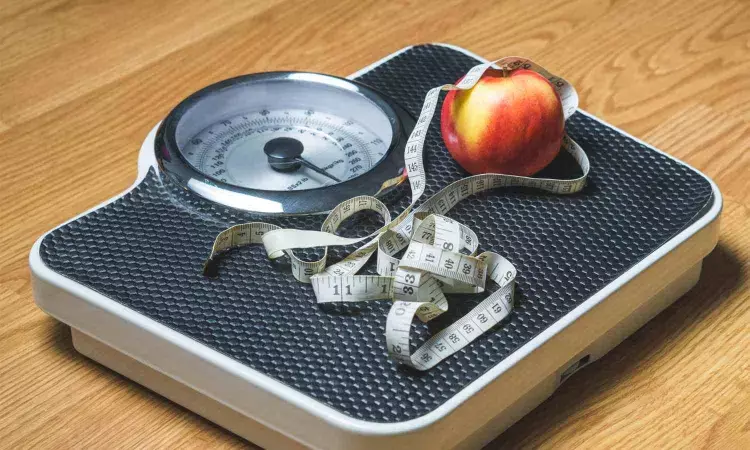- Home
- Medical news & Guidelines
- Anesthesiology
- Cardiology and CTVS
- Critical Care
- Dentistry
- Dermatology
- Diabetes and Endocrinology
- ENT
- Gastroenterology
- Medicine
- Nephrology
- Neurology
- Obstretics-Gynaecology
- Oncology
- Ophthalmology
- Orthopaedics
- Pediatrics-Neonatology
- Psychiatry
- Pulmonology
- Radiology
- Surgery
- Urology
- Laboratory Medicine
- Diet
- Nursing
- Paramedical
- Physiotherapy
- Health news
- Fact Check
- Bone Health Fact Check
- Brain Health Fact Check
- Cancer Related Fact Check
- Child Care Fact Check
- Dental and oral health fact check
- Diabetes and metabolic health fact check
- Diet and Nutrition Fact Check
- Eye and ENT Care Fact Check
- Fitness fact check
- Gut health fact check
- Heart health fact check
- Kidney health fact check
- Medical education fact check
- Men's health fact check
- Respiratory fact check
- Skin and hair care fact check
- Vaccine and Immunization fact check
- Women's health fact check
- AYUSH
- State News
- Andaman and Nicobar Islands
- Andhra Pradesh
- Arunachal Pradesh
- Assam
- Bihar
- Chandigarh
- Chattisgarh
- Dadra and Nagar Haveli
- Daman and Diu
- Delhi
- Goa
- Gujarat
- Haryana
- Himachal Pradesh
- Jammu & Kashmir
- Jharkhand
- Karnataka
- Kerala
- Ladakh
- Lakshadweep
- Madhya Pradesh
- Maharashtra
- Manipur
- Meghalaya
- Mizoram
- Nagaland
- Odisha
- Puducherry
- Punjab
- Rajasthan
- Sikkim
- Tamil Nadu
- Telangana
- Tripura
- Uttar Pradesh
- Uttrakhand
- West Bengal
- Medical Education
- Industry
Adaptive Behavioral effetive Intervention for Weight Loss Management, reveals study

USA: In a groundbreaking development in healthcare, a recent randomized clinical trial has unveiled promising results regarding an adaptive behavioral intervention for weight loss management. This innovative approach offers new hope for individuals struggling with weight-related health issues, providing a tailored and dynamic strategy to support their journey towards healthier lifestyles.
The adaptive, noninferiority randomized clinical trial of 400 adults with obesity or overweight showed that a wireless system that provided daily feedback on progress in weight loss and lifestyle change is not noninferior to the same system with human coaching.
"In the study, the mean 6-month weight change was −2.8 kg with the wireless system alone and −4.8 kg with the wireless system with coaching (difference in weight change, −2.0 kg)," the researchers reported in the Journal of the American Medical Association (JAMA).
In clinical practice, lifestyle interventions for weight loss are difficult to implement. Self-managed mobile health implementations with or without added support after unsuccessful weight loss attempts could offer effective population-level obesity management. Considering this, Bonnie Spring, Northwestern University Feinberg School of Medicine, Chicago, Illinois, and colleagues aimed to test whether a wireless feedback system (WFS) provides noninferior weight loss versus WFS plus telephone coaching. They also tested whether participants who do not respond to initial treatment achieve greater weight loss with more versus less vigorous step-up interventions.
The noninferiority randomized trial included 400 adults aged 18 to 60 years, with a body mass index (BMI) of 27 to 45. They were randomized in a 1:1 ratio to undergo three months of treatment initially with WFS or WFS plus coaching at a US academic medical center between 2017 and 2021. Those who attained suboptimal weight loss were rerandomized to undergo modest or vigorous step-up intervention.
The WFS comprised a Wi-Fi activity tracker and scale transmitting data to a smartphone app that provided daily feedback on progress in weight loss and lifestyle changes, and WFS plus coaching added 12 weekly 10- to 15-minute supportive coaching calls delivered by bachelor’s degree–level health promotionists viewing self-monitoring data of the participants on a dashboard; step-up interventions included supportive messaging via mobile device screen notifications with or without powdered meal replacement or coaching.
Staff and participants were unblinded, and outcome assessors were blinded to treatment randomization.
The primary outcome was the between-group difference in 6-month weight change. Noninferiority margin was defined as a difference in weight change of −2.5 kg. Secondary outcomes comprised between-group differences for all participants in weight change at 3 and 12 months and between-group 6-month weight change differences among nonresponders exposed to modest vs vigorous step-up interventions.
The study led to the following findings:
- Among 400 participants (mean age, 40.5 years; 76.3% women; mean BMI, 34.4) randomized to undergo WFS (n = 199) versus WFS plus coaching (n = 201), outcome data were available for 85.5% of participants at six months.
- Six-month weight loss was −2.8 kg for the WFS group and −4.8 kg for participants in the WFS plus coaching group (difference in weight change, −2.0 kgs); the 90% CI included the noninferiority margin of −2.5 kg.
- Weight change differences were comparable at 3 and 12 months and, among nonresponders, at six months, with no difference by step-up therapy.
"The findings showed that a wireless feedback system (Wi-Fi activity tracker and scale with a smartphone app to provide daily feedback) was not noninferior to the same system with added coaching," the researchers wrote.
"There is a need for continued efforts to identify strategies for weight loss management and to accurately select interventions for different individuals to achieve weight loss goals," they concluded.
Reference:
Spring B, Pfammatter AF, Scanlan L, et al. An Adaptive Behavioral Intervention for Weight Loss Management: A Randomized Clinical Trial. JAMA. Published online May 14, 2024. doi:10.1001/jama.2024.0821
Dr Kamal Kant Kohli-MBBS, DTCD- a chest specialist with more than 30 years of practice and a flair for writing clinical articles, Dr Kamal Kant Kohli joined Medical Dialogues as a Chief Editor of Medical News. Besides writing articles, as an editor, he proofreads and verifies all the medical content published on Medical Dialogues including those coming from journals, studies,medical conferences,guidelines etc. Email: drkohli@medicaldialogues.in. Contact no. 011-43720751


